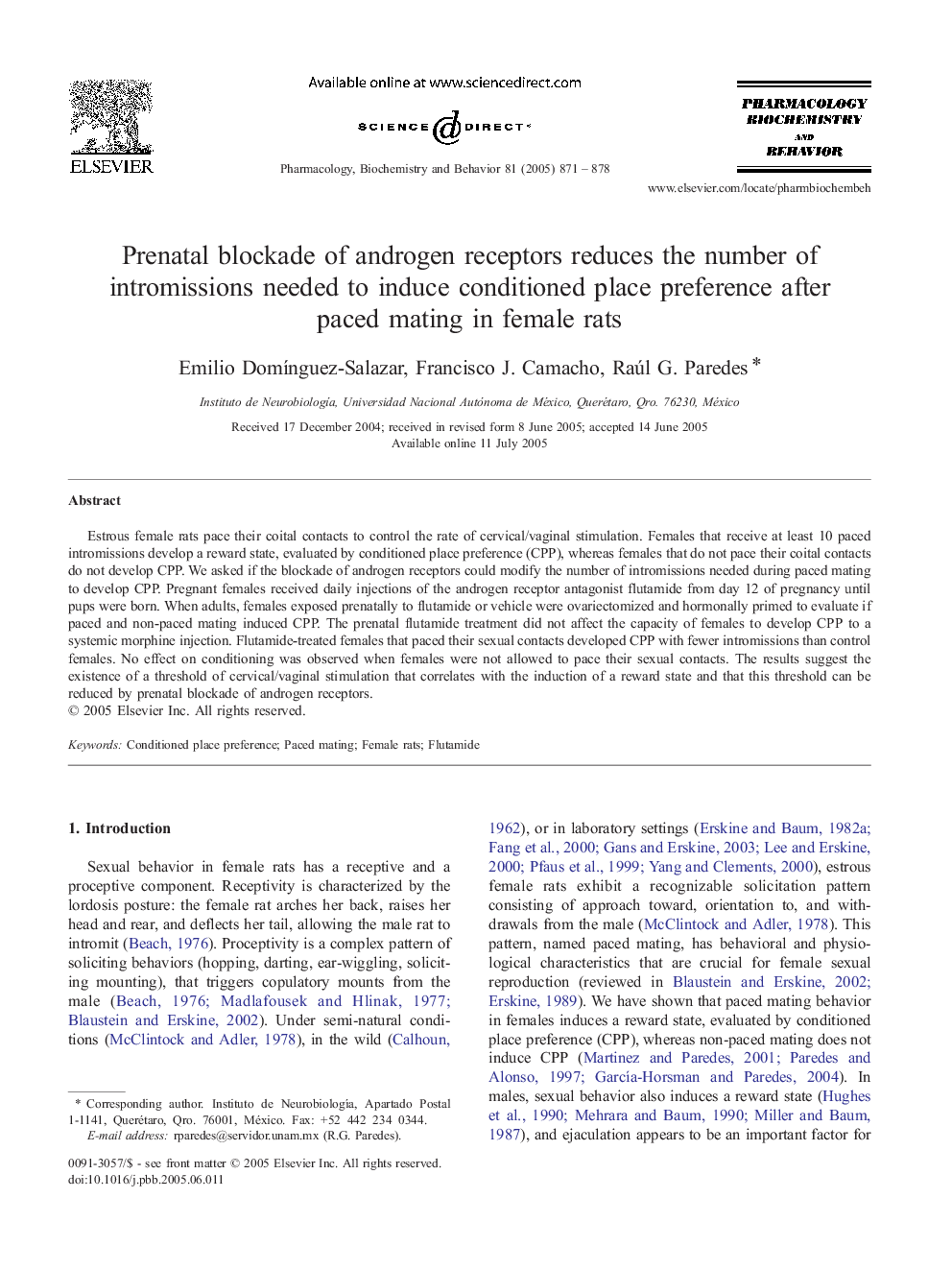| Article ID | Journal | Published Year | Pages | File Type |
|---|---|---|---|---|
| 10838556 | Pharmacology Biochemistry and Behavior | 2005 | 8 Pages |
Abstract
Estrous female rats pace their coital contacts to control the rate of cervical/vaginal stimulation. Females that receive at least 10 paced intromissions develop a reward state, evaluated by conditioned place preference (CPP), whereas females that do not pace their coital contacts do not develop CPP. We asked if the blockade of androgen receptors could modify the number of intromissions needed during paced mating to develop CPP. Pregnant females received daily injections of the androgen receptor antagonist flutamide from day 12 of pregnancy until pups were born. When adults, females exposed prenatally to flutamide or vehicle were ovariectomized and hormonally primed to evaluate if paced and non-paced mating induced CPP. The prenatal flutamide treatment did not affect the capacity of females to develop CPP to a systemic morphine injection. Flutamide-treated females that paced their sexual contacts developed CPP with fewer intromissions than control females. No effect on conditioning was observed when females were not allowed to pace their sexual contacts. The results suggest the existence of a threshold of cervical/vaginal stimulation that correlates with the induction of a reward state and that this threshold can be reduced by prenatal blockade of androgen receptors.
Related Topics
Life Sciences
Biochemistry, Genetics and Molecular Biology
Biochemistry
Authors
Emilio DomÃnguez-Salazar, Francisco J. Camacho, Raúl G. Paredes,
